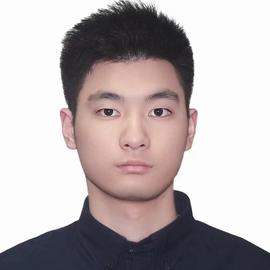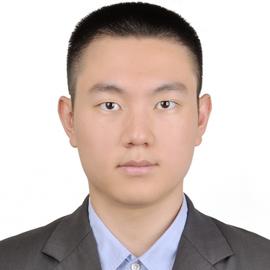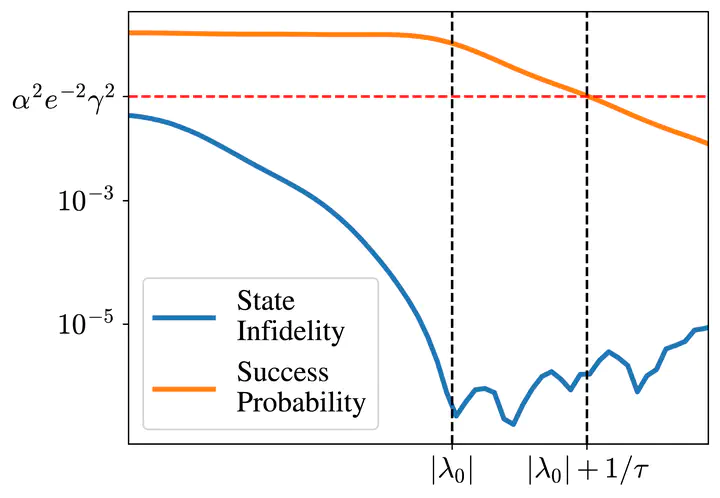Abstract
Imaginary-time evolution is fundamental to analyzing quantum many-body systems, yet classical simulation requires exponentially growing resources in both system size and evolution time. While quantum approaches reduce the system-size scaling, existing methods rely on heuristic techniques with measurement precision or success probability that deteriorates as evolution time increases. We present a quantum algorithm that prepares normalized imaginary-time evolved states using an adaptive normalization factor to maintain stable success probability over large imaginary times. Our algorithm approximates the target state to polynomially small errors in inverse imaginary time using polynomially many elementary quantum gates and a single ancilla qubit, achieving success probability close to one. When the initial state has reasonable overlap with the ground state, this algorithm also achieves polynomial resource complexity in the system size. We extend this approach to ground-state preparation and ground-state energy estimation, achieving reduced circuit depth compared to existing methods. Numerical experiments validate our theoretical results for evolution time up to 50, demonstrating the algorithm’s effectiveness for long-time evolution and its potential applications for early fault-tolerant quantum computing.
Publication
arXiv.2507.00908

PhD Student (2023)
I obtained my BMath in AMath, CO & joint PMath from the University of Waterloo. My research interests include quantum algorithm design and quantum machine learning.

PhD Student (2025)
I obtained my BS in Physics from SUN YAT-SEN University under the supervision of Prof. Yiwen Pan. I obtained my MS degree in Imperial College London under the supervision of Prof. Chris Hull, FRS. My research interests include mathematical physics and quantum computation.

PhD Student (2024)
I obtained my BS in Computer Science from Sun Yat-sen University under the supervision of Prof. Yanghui Rao. I obtained my MS degree in Computer Science from Sun Yat-sen University under the supervision of Prof. Lvzhou Li. My research interests include quantum computation and quantum architecture.

Associate Professor
Prof. Xin Wang founded the QuAIR lab at HKUST(Guangzhou) in June 2023. His research primarily focuses on better understanding the limits of information processing with quantum systems and the power of quantum artificial intelligence. Prior to establishing the QuAIR lab, Prof. Wang was a Staff Researcher at the Institute for Quantum Computing at Baidu Research, where he concentrated on quantum computing research and the development of the Baidu Quantum Platform. Notably, he spearheaded the development of Paddle Quantum, a Python library designed for quantum machine learning. From 2018 to 2019, Prof. Wang held the position of Hartree Postdoctoral Fellow at the Joint Center for Quantum Information and Computer Science (QuICS) at the University of Maryland, College Park. He earned his doctorate in quantum information from the University of Technology Sydney in 2018, under the guidance of Prof. Runyao Duan and Prof. Andreas Winter. In 2014, Prof. Wang obtained his B.S. in mathematics (with Wu Yuzhang Honor) from Sichuan University.
 Performance of ITE state preparation
Performance of ITE state preparation